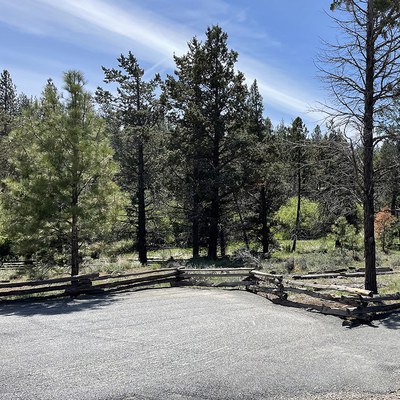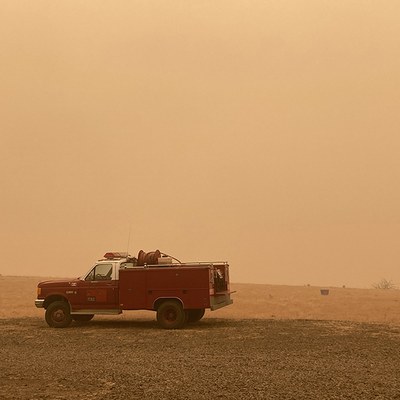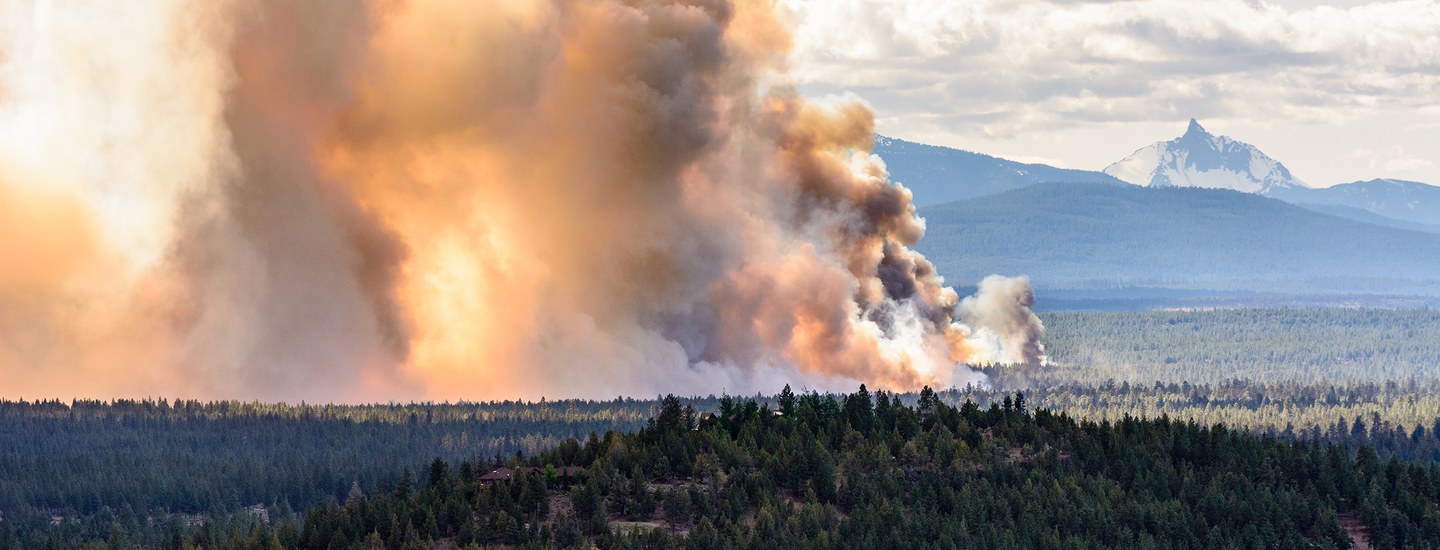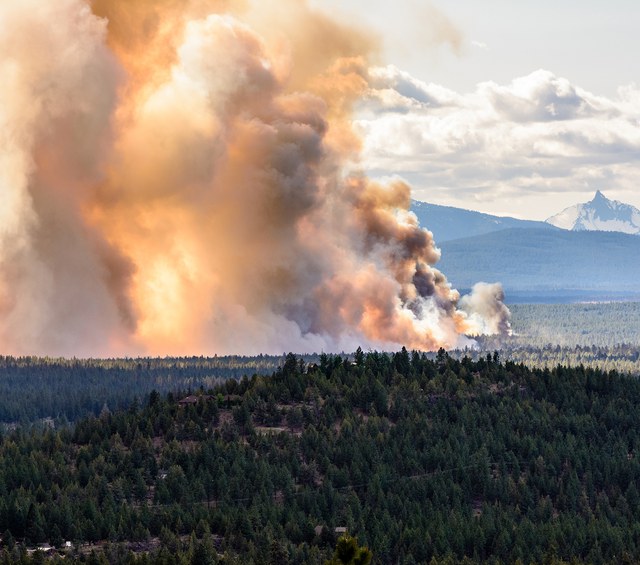Wildfire season has officially arrived in Central Oregon. That means more than looking at the AQI before a weekend hike, but looking at how you can help prevent wildfires from starting and spreading. A large number of wildfires in Oregon are caused by humans each year. Help be part of the solution—be prepared and know what you can do to prevent wildfires.

Cars and Dry Vegetation. Cars can get hot enough in the summer to start wildfires. When vehicles are parked over dry plants during Central Oregon’s hot summers, the heat on the underside of the car can ignite the dry plants below. You also risk starting a wildfire when you drive on unmaintained dirt roads. The plants in the middle of the road can catch on a vehicle’s underside and quickly light on fire. Avoid starting an unintentional fire by parking only in designated spots that do not have plants underneath, whether you’re out for a hike, around town, or at a friend’s house. No place to park? Consider protecting the lands we love by visiting them on another day, and heading to one of Central Oregon’s many other beautiful outdoor places.
Campfires. We’ve all seen the signs: We Want Your Campfire DEAD OUT! That means there shouldn’t be any residual heat coming from your campfire when you leave. Be the person that makes sure your group's campfire is out before heading to your tent or trailer for the night. Here’s how to make sure your fire is dead out:
- Slowly add water to your campfire.
- Stir, scrape, and separate the coals and ash to spread the heat out.
- Add more water to your campfire until it stops steaming.
- Feel for any residual heat by using the back of your hand held above the coals and ash (taking care not to touch the fire!). Make sure you check the edges of your fire and along the fire ring.
- If you still detect a little bit of heat, continue to add more water and stir the coals until you no longer feel any heat.
Bonfires. Bonfires can be a lot of fun and are a summer tradition for some. While you're enjoying yourself, please remember—the bigger the fire, the greater chance of it getting out of control. It’s easy for an unexpected breeze to take some embers with it, and catch nearby grasses on fire. Remember, the smaller, the better.
Debris Burning. Never burn debris during wildfire season. Debris burning is best done in the late fall and winter. But you should always check weather conditions, regardless of the time of year. Contact your local fire district before burning to make sure debris burning is allowed. Things like wind, temperature, and humidity all affect a fire’s ability to spread. Keep your debris pile small and feed it from a larger pile of material. And make sure the fire is dead out before you leave it!

Fireworks. While fireworks and summer go hand-in-hand for some, they can be incredibly dangerous when it comes to wildfires. In 2018, in the middle of Bend, Pilot Butte caught fire from fireworks set off by a group of friends. Fireworks are illegal on all public lands in Central Oregon, including national forests, wilderness areas, campgrounds, and state parks. They are also illegal in the cities of Bend, Sisters, and Sunriver, and cities or counties may put temporary bans in place during wildfire season. Be sure to check with your local fire district before you decide to use fireworks and make sure you know which fireworks are legal in Oregon and how to safely set them off.
Defensible Space. When a wildfire does start, you’ll want to make sure you have defensible space around your home, especially if you live close to the forest. There are several ways you can create a defensible space. Here are a few suggestions to get you started:
- Trim branches that overhang your house, deck, garage, and sheds
- Prune the lower branches of large trees
- Create small fuel breaks with hardscaping features in your yard
- Landscape with non-combustible mulches like crushed stone and gravel
- Use landscaping plants that are fire-resistant (not to be confused with fire proof)
- Screen your roof and attic vents to prevent embers from flying into your home
- Store firewood at least 30 feet away from your home
- Make sure you have Class A fire-rated roofing products
Remember, we can all do our part to reduce wildfires!
Resources:
Learn more:
- Fire in Central Oregon
- Wildfires + Climate Change
- It's Smoke Season
- Wildfire Preparation, Deschutes County Sheriff's Office in Oregon
- Wildfire Preparedness FAQs, City of Bend


